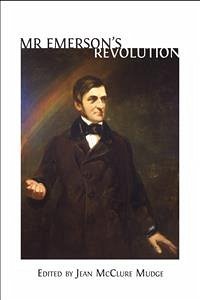This volume traces the life, thought and work of Ralph Waldo Emerson, a giant of American intellectual history, whose transforming ideas greatly strengthened the two leading reform issues of his day: abolition and women’s rights. A broad and deep, yet cautious revolutionary, he spoke about a spectrum of inner and outer realities—personal, philosophical, theological and cultural—all of which gave his mid-career turn to political and social issues their immediate and lasting power.This multi-authored study frankly explores Emerson's private prejudices against blacks and women, held at the same time as he was publicly championing their causes. Such a juxtaposition freshly charts the evolution of Emerson's slow but steady application of his early neo-idealism to emancipating blacks and freeing women from social bondage. His shift from philosopher to active reformer had lasting effects not only in America but also abroad.In the U.S. Emerson influenced such diverse figures as Thoreau, Whitman, Dickinson and William James; in Europe, Mickiewicz, Wilde, Kipling, Nietzsche and Camus. He also had many leading followers in India and Japan. The book includes 166 illustrations, among them eight custom-made maps of Emerson's haunts and wide-ranging lecture itineraries. It also includes a new four-part chronological table of his life, notable national and international events, and major inventions.Mr. Emerson's Revolution provides essential reading for students and teachers of American intellectual history, the abolitionist struggle and the women’s rights movement―and for anyone interested in the nineteenth-century roots of these seismic social changes.
Bitte wählen Sie Ihr Anliegen aus.
Rechnungen
Retourenschein anfordern
Bestellstatus
Storno









